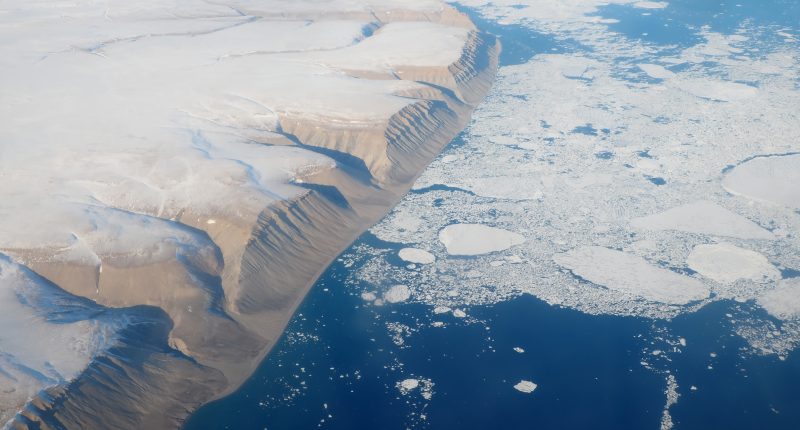THE world’s largest empty island is so desolate it’s used as a fake Mars by scientists to train for space.
Located 1,000 miles south of the Earth’s North Pole, Devon Island even looks like a replica of the red planet thanks to its crater-scarred landscape.
Officially falling under the ownership of Canada, the remote location is one of the largest members of the Canadian High Arctic Archipelago, Nunavut.
Not a single soul calls this place home on a permanent basis, yet many scientists have set foot upon the Mars lookalike to plan for life beyond our atmosphere.
The island is only slightly smaller than Croatia in comparison, but offers much harsher weather conditions.
For two months during the height of summer, when the ground becomes snow-free, researchers and their associates head to the Haughton-Mars Project Base Camp on the island.
Read more in Tech
Here, they conduct research into how human explorers might live and work on other planets.
But despite it being summer, temperatures hardly ever reach above 8C.
In fact, the average annual temperature on the island is an unbearable -16C, although readings can plummet to as low as -50C in the winter.
While Devon Island’s living conditions and sparsity are of particular interest, the presence of a huge crater also attracts plenty of attention.
Most read in Tech
The Haughton impact crater, as it is known, was formed around 32 million years ago when an object estimated to have been approximately 1.2 miles in diameter hit the surface.
After the impact obliterated almost all life for several hundred miles around, and flattened the landscape, a giant crater around 14 miles wide was left in its place.
The Haughton Crater now ripples with canyons, valleys and craters and is covered in ice that routinely thaws and freezes.
But with the island receiving next to no rainfall, the crater has become an ideal practice ground for emulating an interplanetary expedition.
Now, scientists from Nasa, the Seti Institute and the Mars Institute conduct experiments there on a yearly basis.
Base camp sits at the edge of the Haughton Impact Centre – and all supplies must be flown in.
Scientists test the rocks and life on the island to see how they compare to those on Mars, while remote control vehicles are also tested against the rough terrain.
Other space tech they’ve tested includes robotic rovers, drills, life support systems, plant growth systems, and concept spacesuits.
Devon Island is also home to the Flashline Mars Arctic Research Station, where scientists and researchers test “Low Level Laser Light Therapy” used to keep astronauts flexible and limber in space.
With Mars also meaning astronauts will be exposed to cold temperatures for long periods of time, Devon Island is the perfect place to practice future missions.
Aside from scientists, researchers and experts, tourists do have access to the island.
Some opt to travel via boat from Greenland, sailing the path of the fabled Northwest Passage used by European explorers in the 19th century.
But rather than heading straight for the crater, visitors go to the TureLove Lowlands area on the northeast coast, where glaciers, fjords and stunning scenery awaits.
READ MORE SUN STORIES
Comparatively warm to the rest of the island, with some vegetation, this area sees grazing musk-oxen, waterfowl and roaming lemmings.
Polar bears have also been spotted on expeditions, while narwhal and beluga whales occupy the surrounding seas.
Could man colonize Mars?

COLONISATION on Mars appears to be getting more possible as scientists work for ways to safely live on the remote red planet
But while the cost of the necessary methods of space colonisation pose are already difficult to overcome, the actual living conditions need to be perfect too.
As things stand. however, Mars is not suited to human visitors.
But if we were to send people there, then they would have to remain in very restricted conditions.
For starters, they would most likely have to remain inside their space suits and the confines of a base.
While Mars’ day and general composition are similar to Earth, the planet is hostile to life.
Mars has an unbreathable atmosphere,, while the barren landscape is covered by fine, toxic dust and intense ionising radiation
Landers and rovers have successfully explored the planetary surface and delivered information about conditions on the ground, yet no human has ever touched down there.

















